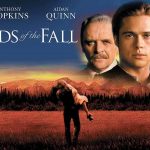The Last Duel (2021)
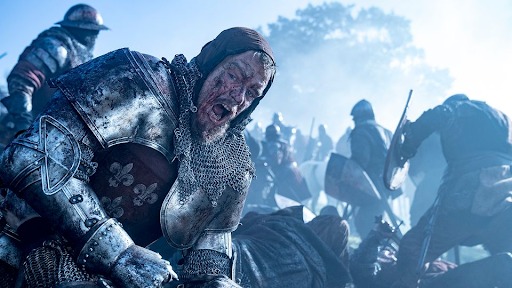
“The Last Duel” (2021): A Gripping Historical Drama Directed by Ridley Scott
Released in 2021, “The Last Duel” is a powerful historical drama directed by the acclaimed filmmaker Ridley Scott, known for his masterful storytelling in films such as “Gladiator” and “Blade Runner.” Based on Eric Jager’s book, the film is a gripping exploration of honor, betrayal, and the complexities of truth, set against the backdrop of 14th-century France. Featuring a stellar cast, including Matt Damon, Adam Driver, Jodie Comer, and Ben Affleck, “The Last Duel” combines intense performances with a thought-provoking narrative that resonates with contemporary issues of justice and gender.
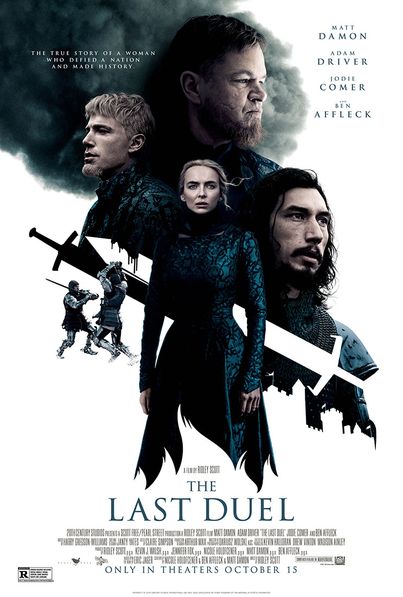
The story revolves around a historical event: the last legally sanctioned duel in France, which took place in 1386. The narrative is presented through the perspectives of three characters: Jean de Carrouges (Matt Damon), a knight, Jacques Le Gris (Adam Driver), a squire, and Marguerite de Carrouges (Jodie Comer), Jean’s wife. The plot is ignited by an accusation made by Marguerite against Le Gris, claiming that he raped her while her husband was away. As the accusation leads to a trial by combat, the film delves into the themes of honor, truth, and the societal roles of men and women, ultimately questioning the reliability of each character’s perspective.
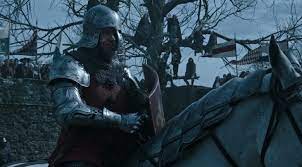
Ridley Scott’s direction is marked by his signature visual style and attention to historical detail. The film’s cinematography, helmed by Dariusz Wolski, captures the gritty realism of medieval life, from the opulent courts to the harsh battlefields. Scott’s pacing is deliberate, allowing the audience to absorb the emotional weight of the characters’ struggles while building tension leading up to the climactic duel. The film’s score, composed by Harry Gregson-Williams, complements the narrative with an evocative backdrop that enhances the dramatic moments.

“The Last Duel” is primarily classified as a historical drama, but it also incorporates elements of action and psychological thriller. The film explores themes of power dynamics, the nature of truth, and the consequences of societal norms. By portraying the events from multiple viewpoints, Scott invites viewers to reflect on the subjective nature of truth and the often-overlooked voices of women in history. This narrative structure adds depth to the film, challenging audiences to consider the implications of the characters’ actions and the societal context in which they exist.
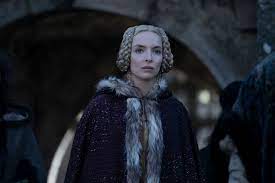
The performances in “The Last Duel” are exceptional, with each actor bringing depth to their roles. Matt Damon delivers a strong performance as Jean, embodying the knight’s sense of honor and vulnerability. Adam Driver’s portrayal of Jacques is both charismatic and complex, presenting a character who grapples with his own moral dilemmas. Jodie Comer shines as Marguerite, capturing the strength and resilience of a woman fighting for her voice in a patriarchal society. Ben Affleck, playing Count Pierre d’Alençon, adds a layer of intrigue and political maneuvering, showcasing the intricate web of power and influence.
Upon its release, “The Last Duel” received generally positive reviews from critics, who praised its ambitious storytelling and strong performances. While it faced challenges at the box office, the film has been recognized for its timely exploration of issues related to consent and the historical treatment of women. Its thoughtful approach to a complex subject matter has sparked discussions about the relevance of its themes in today’s society.
In conclusion, “The Last Duel” is a compelling historical drama that showcases Ridley Scott’s directorial prowess and the talents of its exceptional cast. With its engaging narrative, exploration of truth and honor, and powerful performances, the film offers a gripping cinematic experience. As it delves into the intricacies of human relationships and societal norms, “The Last Duel” stands as a significant work that invites audiences to reflect on the nature of justice and the enduring impact of history on contemporary issues.









